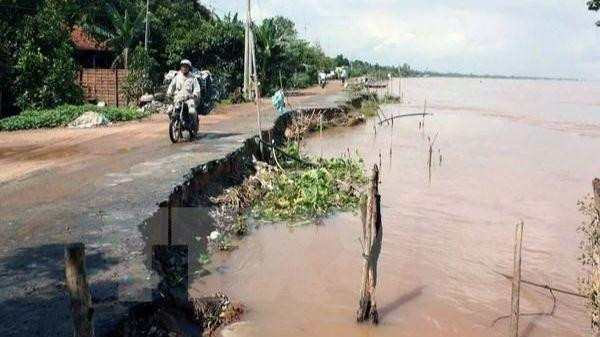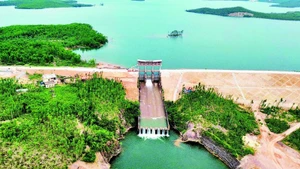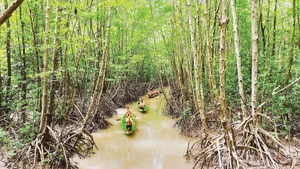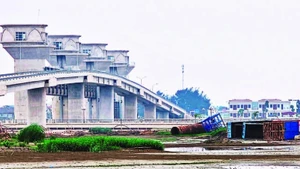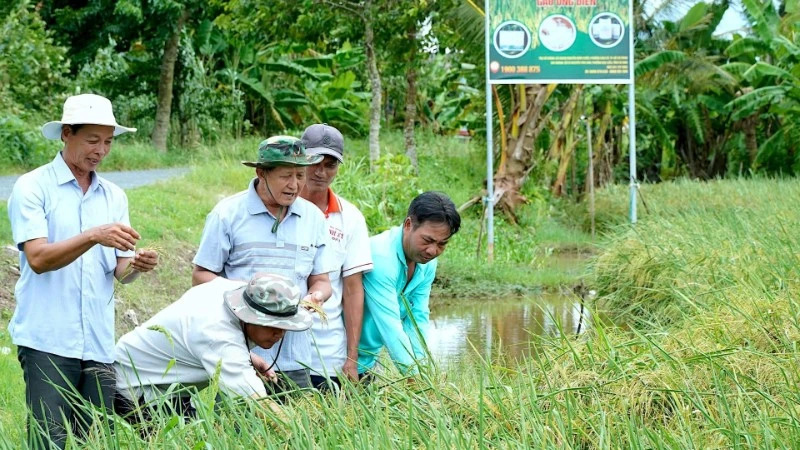The project has been jointly launched by the Netherlands Development Organisation (SNV), the Vietnamese Ministry of Natural Resources and Environment, and the German Ministry for Economic Affairs and Climate Action.
The Mekong Delta region has long been the largest agricultural production hub of Vietnam, which helps Vietnam ensure national food security and exports.
The region contributes 31.37% to the country’s agricultural GDP, and accounts for 50% of total rice production, 65% of aquaculture production, 70% of fruit output, 95% of the country’s rice exports and 60% of the country’s fish exports.
Due to the impacts of climate change, the region has suffered severe drought, rising sea levels and saltwater intrusion, making agricultural production more difficult.
SNV Country Director in Vietnam Peter Loach said that SNV hopes that the VN-ADAPT project will seek solutions for conservation and restoration of biodiversity and ecosystems, thus helping to improve the livelihoods of local people, and towards smart agriculture that adapts to climate change.
Le Ngoc Tuan, head of the International Cooperation Department under the Ministry of Natural Resources and Environment, said that Vietnam is one of the countries heavily affected by climate change. At the 26th UN Climate Change Conference (COP26), the Vietnamese Prime Minister made a strong commitment to the international community to achieve net-zero emissions by 2050 and Vietnam has been proactively and seriously implementing the commitment.
The PM has recently approved the national strategy against climate change until 2050 with an aim to effectively adapt to climate change, while reducing vulnerability and the damage it causes.
The VN-ADAPT project is hoped to help promote nature-based solutions in the agricultural sector and speed up the transformation of production practices in key regions, including the Mekong Delta, to help them better adapt to climate change.
